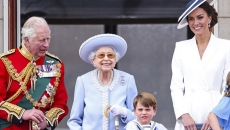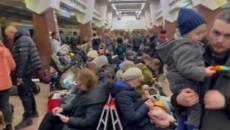VANCOUVER - The British Columbia Court of Appeal has unanimously upheld a lower court's dismissal of a Vancouver surgeon's challenge of the Medicare Protection Act, saying bans on extra-billing and private insurance do not violate the Charter.
The panel of three Appeal Court justices did find the lower-court judge erred in his analysis of the right to life, saying the provincial act's provisions do deprive some patients, not only of the right to security of the person, but of the right to life.
However, in the ruling issued Friday, they found that breach can be overruled by Section 1 of the Charter, which says rights can be limited if it's shown to be justified in democratic society.
Chief Justice Robert Bauman and Justice David Harris concluded the fundamental purpose of the act is to make sure access to medical care for everyone who's eligible in the public system is based on need, not a patient's ability to pay.
While the rights to life and security of the person focus on individuals, the judges said they don't think the foundations of the health system "can be held hostage to the veto of any one individual who bears adverse consequences."
The court recognizes the law is "upheld at the cost of real hardship and suffering to many for whom the public system is failing to provide timely and necessary care," wrote Justice Lauri Ann Fenlon, who separately found provisions in the act do breach Charter rights, but it's justified under Section 1.
The Appeal Court's reasons show more than 33,000 adult patients in B.C. were waiting for necessary medical care beyond the maximum benchmark wait time for their particular condition as of March 2018, including many with severe pain, risk of permanent functional impairment and time-sensitive conditions such as cancer.
B.C. Health Minister Adrian Dix welcomed the decision, saying it emphasizes the importance of public health care, which is "a cornerstone of our Canadian identity."
Dix said in a statement the B.C. government has been working hard to increase access to surgeries and clear the backlog of procedures that were postponed due to the pandemic.
Nearly all of the patients whose surgeries were put off during the first wave of COVID-19 have had their procedure, while 97 per cent of surgeries delayed during the second and third waves have been performed, he said.
About 90 per cent of surgeries cancelled from the fourth and fifth waves, along with delays due to extreme weather events, have also been completed, he said.
The B.C. Nurses' Union also applauded the court's decision, calling it a "victory for all patients."
The union is "pleased the court has upheld our society's foundational norms which prioritize fairness and favour a needs-based model for the provision of health care."
Federal Health Minister Jean-Yves Duclos issued a statement saying the ruling validates the belief that any Canadian who requires medically necessary care should be able to receive it based on need, not on the ability or willingness to pay.
Charging patients undermines equity, he said, whether they take the form of charges at the point of service or payment for private insurance.
Dr. Brian Day opened the Cambie Surgery Centre in 1996, saying he wanted to create more operating-room time for surgeons who couldn't get it in hospitals.
He launched the Charter challenge in 2009 and the case landed in B.C. Supreme Court in 2016 with support from four patients as co-plaintiffs.
The lawsuit argued wait times in the public health system are too long and preventing patients from paying for private services violates their rights, while lawyers for the B.C. and federal governments argued a two-tier system would favour those who can afford to pay privately and erode the universal system.
After a four-year trial, the lower court ruled in September 2020 that their lawyers failed to show patients' rights are being infringed by the provincial act.
Justice John Steeves found expert evidence presented at trial showed duplicating care in a private system would not decrease wait times in the public system.
"There is expert evidence that wait times would actually increase," he wrote.
"This would cause further inequitable access to timely care."
Steeves acknowledged that some patients facing long wait times suffer from prolonged pain and an increased risk of deterioration, but he found a two-tier system would "encourage perverse incentives and unethical behaviour by health care providers in order to divert certain patients from the public to the more lucrative private system."
In an interview, Day said he disputes evidence presented at trial showing public wait times would increase under a two-tier system.
He called the decision disappointing, though he noted it was "positive" that the Appeal Court found violations to the rights of life and security of the person.
Private insurance is a "safety valve" for patients facing long wait-lists unable to hold anyone accountable when they are forced to wait longer than the government's own benchmark for receiving a procedure, he said.
"There's a state monopoly, and the government doesn't need to be accountable."
Canadians are forced to accept "unacceptable wait times based on the government criteria of what's unacceptable," said Day, adding it's government that's responsible for severe shortages of doctors and nurses across the country.
Day said he and the other plaintiffs are thinking about their options and may seek to appeal to the Supreme Court of Canada, but "there's a certain fatigue factor."
"There's hardly any point in having a Charter of Rights and Freedoms when you need millions of dollars to fight for those rights," he said.






